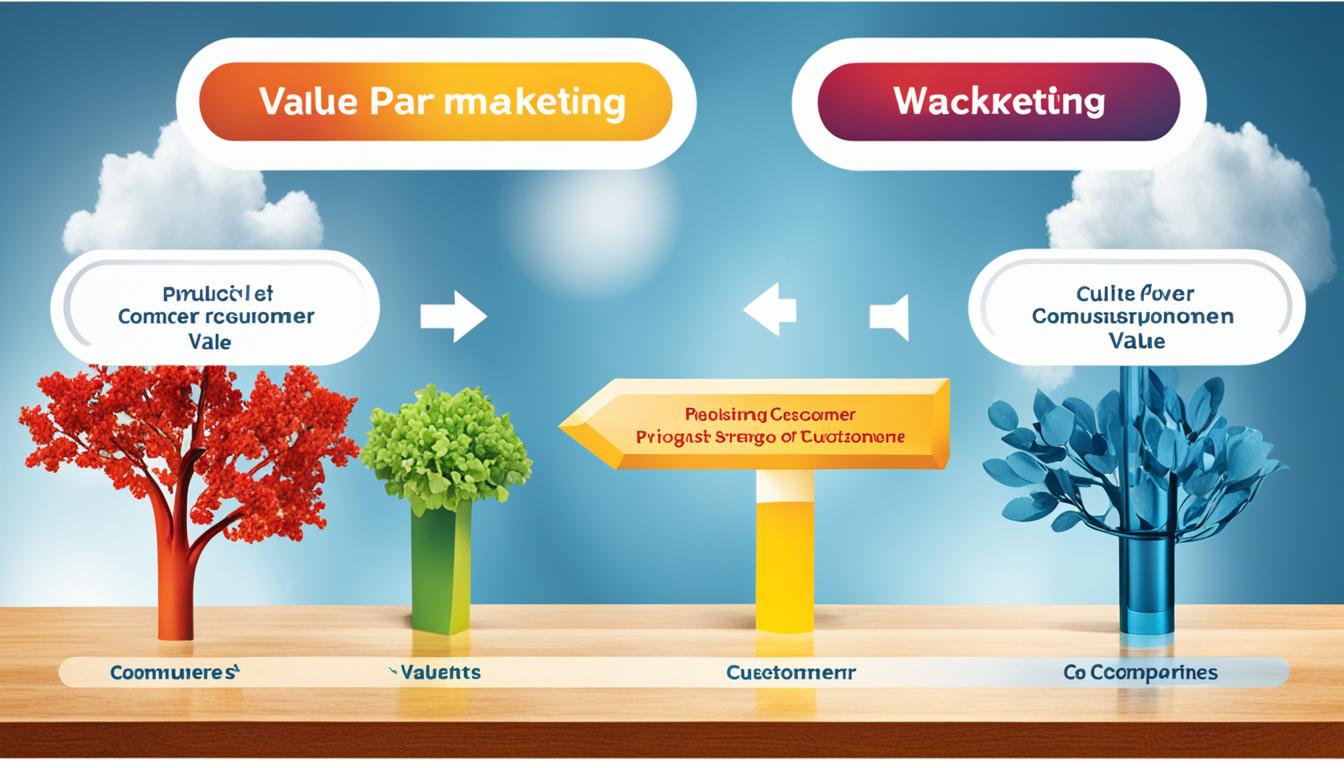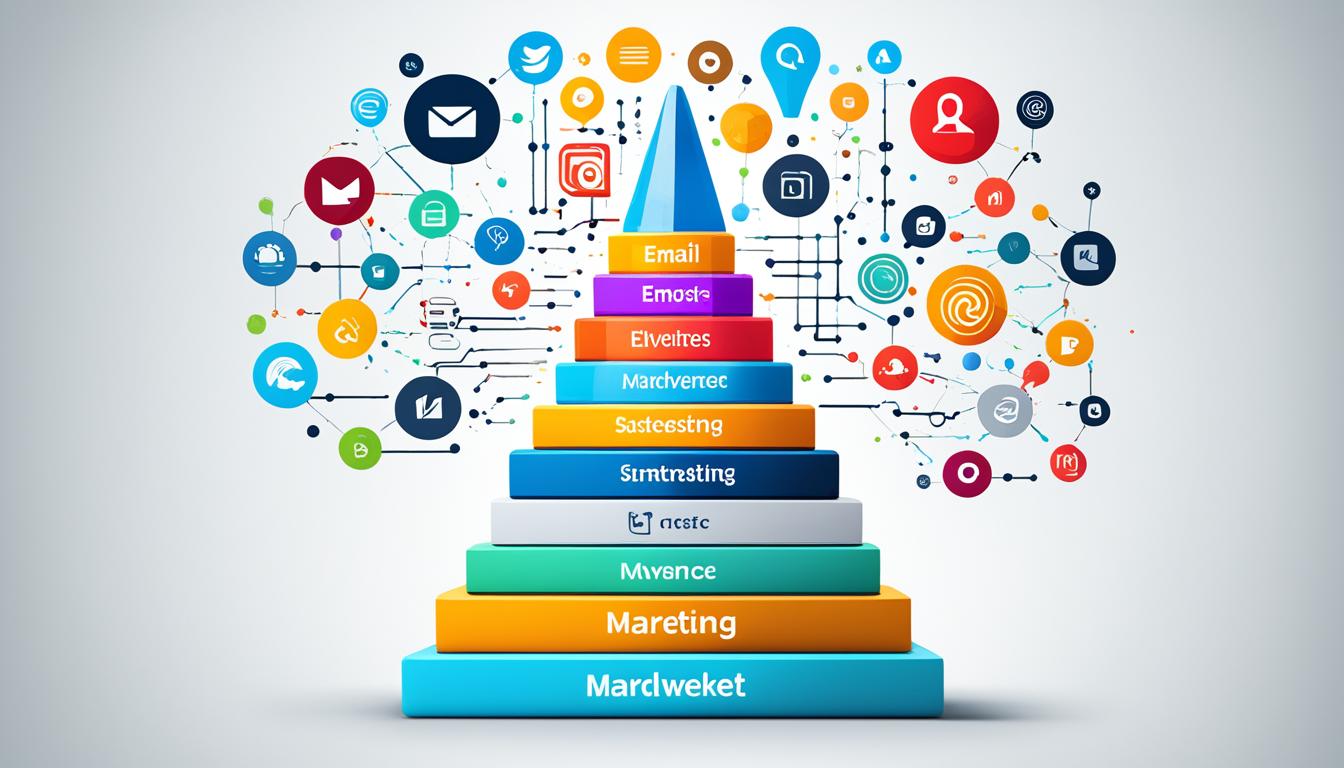The wholesale distribution industry is constantly evolving, and as we approach 2024, it is essential for distributors to adopt effective marketing strategies to stay ahead of the competition. By leveraging data-centric and technology-focused approaches, distributors can ensure their business not only survives but thrives. This includes staying informed about industry trends, embracing digital solutions for efficiency, making data-driven decisions, building collaborative supply chains, and preparing for unexpected scenarios. Managing rapid adaptation to change by fostering innovation and agility is projected to be the #1 thing for distribution success in 2024.
Key Takeaways:
- Wholesale distributors must embrace data-centric and technology-focused marketing strategies to stay competitive.
- Staying informed about industry trends and embracing digital solutions is crucial for successful wholesale marketing.
- Building collaborative supply chains and making data-driven decisions are key to thriving in the evolving distribution industry.
- Adapting to change and fostering innovation are essential for continued success in wholesale distribution in 2024.
- Preparing for unexpected scenarios and managing agile operations are vital for wholesale distributors to thrive.
The Significance of Adaptability in Wholesale Distribution
The past year highlighted the critical importance of adaptability within the wholesale distribution industry. In an era where technology and consumer preferences evolve at a rapid pace, staying competitive necessitates embracing change to sustain growth and success.
Adaptability begins with a transformation from traditional on-premises structures to modern cloud-based setups. By integrating technology into wholesale distribution processes, businesses can achieve greater efficiency and effectiveness. This enables distributors to leverage the power of data analytics and digital tools to make data-driven decisions that propel their businesses forward. Embracing technology integration results in enhanced operational capabilities and a stronger competitive advantage.
Organizational flexibility is another key aspect of adaptability. Wholesale distributors must create an environment that encourages agility and innovation. By fostering a culture of continuous improvement, businesses are better prepared to respond swiftly to changes in the market. This flexibility allows distributors to meet evolving customer needs promptly and surpass their expectations.
Staying ahead of the competition requires a proactive approach. Distributors must actively monitor industry trends, consumer behavior, and emerging technologies. By staying informed and remaining adaptable, businesses can anticipate market shifts and strategically position themselves for success.
The Importance of Differentiation in Wholesale Distribution
To ensure sustainable growth in the wholesale distribution industry, it is crucial for distributors to focus on differentiation. As evolving customer preferences shape the market, distributors must proactively adapt to changing demands to stay ahead of the competition. One effective way to achieve this is by expanding their product portfolios to include complementary products and tailored solutions. By venturing into new markets and diversifying their offerings, distributors can meet the evolving needs of their customers and tap into untapped opportunities.
Differentiation provides distributors with a competitive advantage in the market. By offering unique and specialized products or services, distributors can set themselves apart from their competitors and attract a loyal customer base. This not only helps protect against market fluctuations but also reduces the risks associated with supply disruptions.
Expanding Product Portfolios
One way distributors can differentiate themselves is by expanding their product portfolios to align with evolving customer preferences. By staying informed about market trends and consumer demands, distributors can identify emerging needs and offer complementary products that enhance their existing offerings. This allows distributors to provide a complete solution to their customers, catering to a broader range of requirements.
Tailored Solutions
Another way to differentiate in the wholesale distribution industry is by offering tailored solutions. By understanding the specific pain points and challenges faced by different customer segments, distributors can develop customized solutions that address their unique needs. This level of personalization enhances customer satisfaction and builds lasting relationships, giving distributors a competitive edge.
Venturing into New Markets
Entering new markets can be a strategic move for wholesale distributors, enabling them to expand their customer base and tap into new revenue streams. By conducting market research and identifying untapped opportunities, distributors can enter these markets with tailored products and targeted marketing strategies. This allows them to capitalize on emerging trends and gain a foothold in new territories.
| Differentiation Strategies in Wholesale Distribution | Benefits |
|---|---|
| Expanding product portfolios |
|
| Tailored solutions |
|
| Venturing into new markets |
|
Through product portfolio expansion, tailored solutions, and exploring new markets, wholesale distributors can effectively differentiate themselves and adapt to evolving customer preferences. This provides a competitive advantage in a dynamic and ever-changing market. By constantly innovating and staying ahead of the curve, distributors can position themselves as trusted partners to their customers, ensuring long-term success and growth.
Supply Chain Efficiency for Wholesale Distributors
An efficient supply chain is crucial for wholesale distributors to adapt quickly to changes in the market. In today’s dynamic business environment, distributors need to have the flexibility and agility to respond to unexpected challenges, such as shifts in consumer preferences and supply shortages. To achieve supply chain efficiency, distributors can focus on several key areas:
1. Inventory Management
Effectively managing inventory is essential for supply chain efficiency. By implementing robust inventory tracking systems and employing demand-driven replenishment strategies, distributors can optimize inventory levels, minimize carrying costs, and ensure products are available when needed.
2. Demand Forecasting
Accurate demand forecasting enables wholesale distributors to anticipate customer needs and plan their inventory and production accordingly. By leveraging data analytics and market trends, distributors can optimize their demand forecasting processes and minimize the risk of overstocking or understocking.
3. Supplier Collaboration
Collaborating closely with suppliers is key to supply chain efficiency. By establishing strong relationships and open lines of communication, distributors can enhance coordination, streamline order fulfillment, and ensure timely deliveries. Supplier collaboration also facilitates the exchange of valuable market insights and enables proactive decision-making.
4. Cost Control
Effective cost control measures help wholesale distributors optimize their supply chain operations and improve their bottom line. This includes analyzing and optimizing transportation costs, implementing efficient warehousing and distribution processes, and continuously seeking ways to reduce expenses without compromising on quality.
5. Quality Control
Maintaining high standards of product quality is essential for wholesale distributors to build trust with their customers and uphold their reputation. Implementing robust quality control processes, conducting regular inspections, and working closely with suppliers to ensure consistent quality standards are met are critical aspects of supply chain efficiency.
By optimizing these aspects of supply chain management, wholesale distributors can ensure their operations remain resilient, responsive, and efficient. A robust and efficient supply chain enables distributors to meet customer demands, adapt to market changes, and ultimately drive sustainable growth in a competitive marketplace.
The Role of Cloud ERP in Wholesale Distribution
Cloud-based ERP systems are essential for the success of wholesale distributors in today’s competitive market. By leveraging cloud technology, distributors can achieve scalability, efficiency, and end-to-end visibility into their operations.
Cloud ERP eliminates the need for disconnected legacy applications and consolidates all business functions, including inventory management, demand planning, and supplier collaboration, into a unified integrated suite. This streamlines processes and improves operational efficiency.
With cloud-based ERP, distributors can adjust resources based on demand, ensuring scalability to meet changing business needs. This flexibility allows for efficient resource allocation and reduces upfront investments in on-premises infrastructure.
Furthermore, cloud ERP provides end-to-end visibility into inventory, orders, and demand, empowering distributors to make data-driven decisions. Real-time insights enable better inventory management, demand planning, and order fulfillment, resulting in improved customer satisfaction.
In addition, cloud ERP promotes collaboration with suppliers, facilitating seamless communication and streamlined processes. By sharing data and insights in real-time, distributors and suppliers can work together effectively to optimize supply chain operations.
In summary, cloud-based ERP systems offer wholesale distributors the scalability, efficiency, and end-to-end visibility they need to succeed in today’s fast-paced business environment. By embracing cloud technology, distributors can streamline operations, enhance collaboration, and make data-driven decisions, ultimately improving their overall operational efficiency.
The Importance of an Omnichannel Strategy for Wholesale Distributors
Wholesale distributors must embrace an omnichannel strategy to effectively reach their diverse customer base. In today’s digital age, consumers have high expectations when it comes to convenience and access to products. They expect the ability to purchase and receive orders quickly from various channels, whether it’s through a website, mobile app, social media, or even in-person. To meet these consumer expectations and provide a seamless shopping experience, wholesalers need to establish multi-channel platforms that cater to customer preferences.
Omnichannel strategies involve integrating different sales and marketing channels, both online and offline, to offer customers real-time access to products and services. By providing a consistent and synchronized experience across channels, wholesale distributors can increase the value they deliver to their customers, ultimately fostering loyalty and driving sales.
One of the key benefits of adopting an omnichannel strategy is the ability to gather and utilize valuable customer data. By centralizing operations and leveraging technology platforms such as NetSuite, distributors can gain real-time visibility into their inventory levels and customer interactions. This data-driven approach enables wholesalers to make informed decisions, optimize their inventory management, and engage with customers in a more personalized and targeted manner.
Benefits of an Omnichannel Strategy for Wholesale Distributors
| Increased Sales | Better Customer Experience | Improved Operational Efficiency |
|---|---|---|
| By offering customers the flexibility to purchase from different channels, wholesalers can capture a larger share of the market and increase their sales. | Omnichannel strategies provide customers with a seamless experience, regardless of the channel they choose. This improves customer satisfaction and builds loyalty. | By leveraging real-time data and optimizing inventory management, distributors can streamline their operations, reducing costs and improving efficiency. |
| Competitive Advantage | Targeted Marketing | Customer Insights |
| Wholesale distributors that embrace an omnichannel strategy gain a competitive edge over competitors who are still operating through a single channel. | Omnichannel strategies allow distributors to target specific customer segments with personalized marketing messages, increasing the effectiveness of their campaigns. | By gathering and analyzing customer data from various channels, wholesalers can gain valuable insights into customer preferences, behaviors, and purchasing patterns. |
In summary, implementing an omnichannel strategy is crucial for wholesale distributors looking to stay competitive in the evolving marketplace. By providing a seamless shopping experience, leveraging customer data, and optimizing their operations, wholesalers can enhance customer satisfaction, increase sales, and drive business growth.
Incorporating Sustainability in Wholesale Distribution
Wholesale distributors play a crucial role in promoting sustainability in the overall supply chain. By adopting eco-friendly practices, distributors can not only contribute to a greener planet but also gain a competitive edge in the market. Incorporating sustainability practices involves optimizing packaging efficiency, embracing energy-efficient operations, reducing waste through recycling and reusing, complying with regulations, and building supply chain resilience.
1. Packaging Efficiency: Enhancing packaging efficiency can significantly reduce material usage, minimize waste, and lower transportation costs. By utilizing innovative packaging techniques, such as right-sizing containers and implementing eco-friendly packaging materials, wholesale distributors can minimize their environmental footprint.
2. Energy Efficiency: Embracing energy-efficient operations can lead to substantial cost savings while reducing greenhouse gas emissions. This can be achieved by implementing energy-efficient technologies, optimizing warehouse lighting and HVAC systems, and adopting renewable energy sources to power operations.
3. Waste Reduction: Wholesale distributors can actively contribute to waste reduction by implementing waste management strategies, such as recycling programs and waste sorting initiatives. Moreover, emphasizing the importance of product reuse and encouraging customers to recycle packaging materials can further minimize waste generation.
4. Regulatory Compliance: Staying informed about regulatory changes related to sustainability is essential for wholesale distributors. By ensuring compliance with local and international environmental regulations, distributors can avoid penalties, maintain their reputation, and demonstrate their commitment to sustainable business practices.
5. Supply Chain Resilience: Sustainability initiatives can enhance supply chain resilience by reducing dependency on scarce resources and lowering the impact of potential disruptions. Wholesale distributors should collaborate with suppliers who share similar sustainability values, develop contingency plans, and implement measures to mitigate risks associated with climate change, such as extreme weather events.
By incorporating sustainability into their business strategies, wholesale distributors can differentiate themselves in an environmentally conscious market, achieve cost savings through efficient resource utilization, and strengthen their supply chain resilience. Embracing sustainable practices is not only the responsible thing to do but also a strategic decision that can drive long-term success and contribute to the well-being of future generations.

| Benefits of Sustainability in Wholesale Distribution | Practices for Achieving Sustainability |
|---|---|
|
|
Formulating a Solid Wholesale Marketing Strategy
Having a solid wholesale marketing strategy is crucial for the success and growth of a wholesale business. It serves as a roadmap to attract customers, increase sales, and establish a competitive advantage. A well-crafted strategy allows distributors to tailor their marketing efforts to the unique needs and pain points of their B2B customers. It sets the business apart by effectively communicating its distinct value proposition and highlighting what sets its products apart from competitors. By formulating a solid marketing strategy, distributors can drive tangible results and secure orders.
Wholesale Marketing Strategies to Drive Growth
To attract and retain customers, wholesale distributors need to implement effective marketing strategies. By leveraging these wholesale marketing strategies, distributors can expand their customer base and increase sales.
Content Marketing
Strengthening content marketing efforts is essential for wholesale distributors. Creating insightful blogs and articles that address the pain points of B2B customers helps build trust, establish expertise, and drive organic traffic to the distributor’s website.
Email Marketing
Email marketing is a powerful tool for engaging with customers and nurturing leads. By sending personalized and targeted emails, distributors can move leads further into the sales journey, increase conversion rates, and generate repeat business.
Industry Events
Attending industry events provides wholesale distributors with valuable networking opportunities. It allows them to showcase their business, connect with potential customers and suppliers, and stay updated on the latest industry trends and developments.
Search Engine Optimization (SEO)
Optimizing the distributor’s website for search engines is crucial for improving online visibility and attracting B2B clients. By implementing SEO best practices, such as optimizing meta tags, using relevant keywords, and regularly creating fresh and valuable content, distributors can increase their website’s ranking and organic traffic.
| Wholesale Marketing Ideas | Wholesale Promotion Ideas | Increase Wholesale Sales | Wholesale Marketing Plan |
|---|---|---|---|
| 1. Create informative blog posts and articles | 1. Offer exclusive discounts for bulk orders | 1. Implement personalized outreach campaigns | 1. Develop a comprehensive marketing strategy |
| 2. Produce engaging videos showcasing products | 2. Collaborate with influencers for product endorsements | 2. Upsell and cross-sell complementary products | 2. Set clear marketing goals and objectives |
| 3. Leverage social media platforms for brand awareness | 3. Launch limited-time promotions to create urgency | 3. Streamline the ordering process for convenience | 3. Analyze marketing performance and adjust strategies accordingly |
Conclusion
In conclusion, for wholesalers looking to expand their business in 2024, it is crucial to focus on various B2B growth strategies. One key aspect is e-commerce optimization, ensuring that the online platform is user-friendly and delivers a seamless purchasing experience for customers. Embracing technology throughout the wholesale operations, such as implementing cloud-based ERP systems, can enhance operational efficiency and scalability.
Effective marketing strategies play a vital role in increasing brand awareness and attracting new customers. Distributors should leverage content marketing, email marketing, and attend industry events to showcase their products and connect with potential buyers. Product diversification is another essential strategy for staying competitive in the market, offering a wider range of products to meet evolving customer demands.
Investing in employee training and fostering a positive company culture are equally important. By equipping employees with the necessary skills and providing a supportive work environment, distributors can enhance productivity and customer satisfaction. Positive company culture contributes to employee retention and creates a strong foundation for long-term business success.
By implementing these B2B growth strategies, wholesalers can position themselves for wholesale business expansion in 2024. As distributors adopt e-commerce optimization, embrace technology, leverage marketing strategies, diversify their product offerings, invest in employee training, and foster a positive company culture, they are well-equipped to achieve remarkable results and thrive in the competitive wholesale industry.
FAQ
What are some effective marketing strategies for wholesale distributors?
Effective marketing strategies for wholesale distributors include content marketing, email marketing, attending industry events, and optimizing the website for search engines.
Why is adaptability important in wholesale distribution?
Adaptability is important in wholesale distribution as technology and consumer preferences are constantly evolving. It enables distributors to stay competitive by embracing change and meeting customer needs.
How can wholesalers differentiate themselves in the market?
Wholesale distributors can differentiate themselves by expanding their product portfolios, offering tailored solutions, and venturing into new markets. This helps them adapt to changing demands and strengthen customer engagement.
How does supply chain efficiency impact wholesale distributors?
Supply chain efficiency is crucial for wholesale distributors as it allows them to respond quickly to market changes. It involves optimizing inventory management, demand forecasting, supplier collaboration, cost control, and quality control.
What role does cloud ERP play in wholesale distribution?
Cloud ERP systems play a pivotal role in the success of wholesale distributors. They provide scalability, efficiency, and real-time visibility into inventory, orders, and demand. They also streamline processes such as inventory management, demand planning, supplier collaboration, and order fulfillment.
Why is an omnichannel strategy important for wholesale distributors?
An omnichannel strategy allows wholesale distributors to effectively reach a diverse customer base. It provides a seamless experience across multiple channels and enhances customer satisfaction. It also improves operational efficiency throughout the cross-channel journey.
How can wholesale distributors incorporate sustainability?
Wholesale distributors can optimize packaging efficiency, embrace energy-efficient operations, and reduce waste through recycling and reusing products. Staying informed about regulatory changes is also vital for compliance and operational resilience.
Why is a solid wholesale marketing strategy important?
A solid wholesale marketing strategy is important for attracting customers, increasing sales, and establishing a competitive advantage. It allows distributors to communicate their value proposition and differentiate themselves in the market.
What are some wholesale marketing strategies to drive growth?
Wholesale marketing strategies to drive growth include content marketing, email marketing, attending industry events, and optimizing the website for search engines. These strategies help expand the customer base and increase sales.
What factors should wholesale distributors focus on to expand their business?
To expand their business, wholesale distributors should focus on optimizing e-commerce platforms, embracing technology for efficiency, leveraging marketing strategies to increase brand awareness, diversifying product offerings, and investing in employee training and creating a positive company culture.




